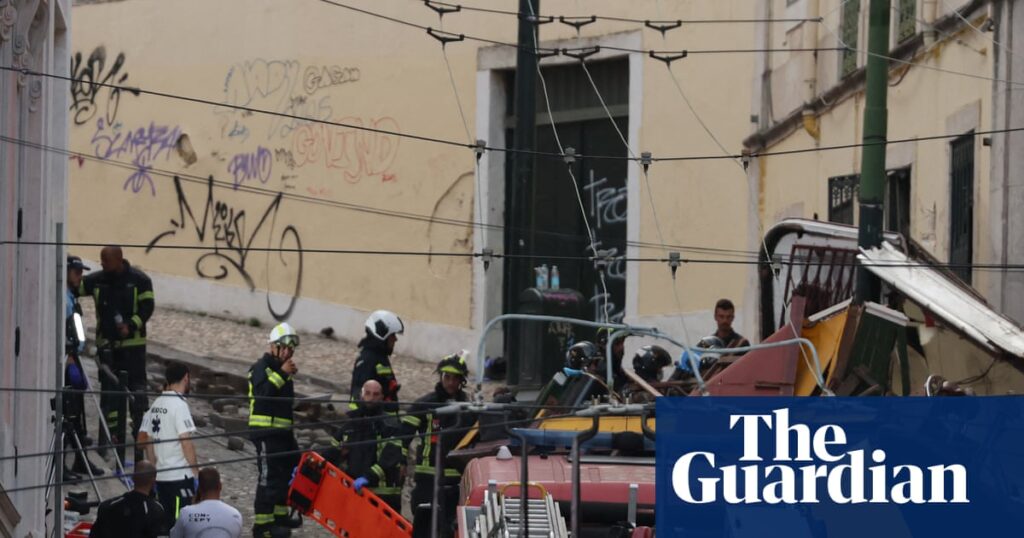At least 15 people have been killed after Lisbon’s Gloria funicular railway car derailed and crashed on Wednesday, an emergency medical service spokesperson has said.
Authorities would not identify the victims or disclose their nationalities, but said some foreign nationals were among the dead. At least 18 people were also injured.
“It’s a tragic day for our city … Lisbon is in mourning, it is a tragic, tragic incident,” Carlos Moedas, the mayor of the Portuguese capital, told reporters.
Portugal’s government declared that Thursday would be a day of national mourning.
Police investigators were inspecting the site and the prosecutor general’s office said it would open a formal investigation, as is customary in public transport accidents.
Footage from the site showed the tram-like funicular, which carries people up and down a hillside in the Portuguese capital, destroyed and emergency workers pulling people out of the wreckage.
In a statement the president, Marcelo Rebelo de Sousa, lamented the accident and expressed hope that authorities would soon establish the cause of the crash.
The line, which opened in 1885, connects Lisbon’s downtown area near the Restauradores Square with the Bairro Alto (Upper Quarter), known for its vibrant nightlife.
It is one of three funicular lines operated by the municipal public transport company Carris and is used by tourists as well as residents.
Carris said in a statement that “all maintenance protocols have been carried out”, including monthly and weekly maintenance programmes and daily inspections.
The Gloria line transports about 3 million people annually, according to the town hall.
Its two cars, each capable of carrying about 40 people, are attached to opposite ends of a haulage cable with traction provided by electric motors on the cars.
The car at the bottom of the line was apparently undamaged, but CNN Portugal said passengers had to jump out of its windows when the incident happened.
Portugal, and Lisbon in particular, has experienced a tourism boom in the past decade, with visitors cramming into the popular downtown area in the summer months.
A spokesperson for the UK’s Foreign, Commonwealth and Development Office said it was in touch with the local authorities and stood by “to provide consular assistance if there are any affected British nationals”.
Britain is the largest source of tourism to Portugal, followed by Germany, Spain and the United States. The US state department did not immediately respond to a request for comment.

